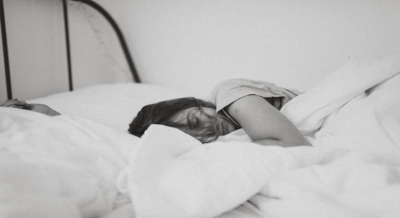New York– People with less than six hours of sleep per night in the days surrounding Covid-19 vaccination can have a blunted antibody response, according to a new research that stresses the importance of sleep in the vaccination effort.
A team led by researchers at the University of Chicago and the French National Institute of Health and Medical Research (Inserm) conducted a meta-analysis which examined the impact of sleep duration on vaccination against viral illnesses such as influenza and hepatitis.
Using the results they compared it to known data on the antibody response to the Pfizer-BioNTech Covid-19 vaccine.
They found that the weakened antibody response in those with shortened sleep was so profound, it was similar to the decline in Covid-19 antibodies two months following the vaccination.
The findings, published in the journal Current Biology, indicates that efforts to promote healthy sleep duration ahead of an immunisation could be an easy way to improve vaccine effectiveness.
“Interestingly, we saw the same outcomes in both influenza, which is a respiratory virus, and hepatitis, which affects the liver, suggesting that this effect could extend to all kinds of viruses, including coronaviruses like SARS-CoV-2,” said Karine Spiegel, a research scientist at Inserm.
“Overall, we see these results as a call to action.”
The researchers also examined the data by sex, since women typically have a stronger vaccination response than men.
They found that while the association was strong for men, it was weaker and not statistically significant for women.
They argue this was likely due to the fact that none of the studies in women accounted for variations in sex hormone levels by menstrual cycle, use of contraceptives and menopausal status, which are known to affect immune function.
“The link between sleep and vaccine effectiveness could be a major concern for people with irregular work schedules, especially for shift workers who typically have reduced sleep duration,” said Eve Van Cauter, Professor of Medicine at University of Chicago.
“This is something people should consider planning around, to ensure that they are getting enough sleep in the week before and after their vaccines,” Van Cauter added. (IANS)
















